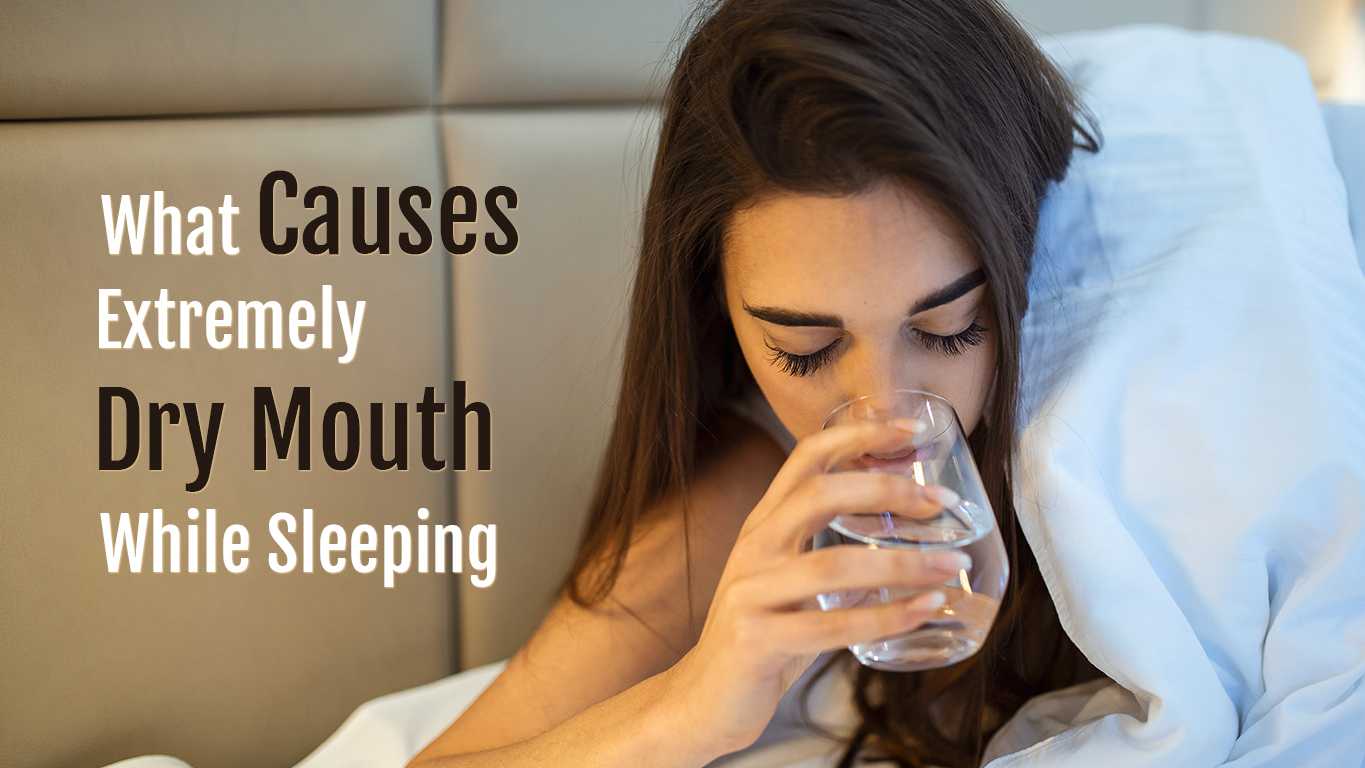What Causes Extremely Dry Mouth While Sleeping?

Do you ever wake up in the middle of the night with an extremely dry mouth? If so, you’re not alone. Many people have this experience, and it can be quite uncomfortable. There are a few possible causes of dry mouth while sleeping. It could be due to medication side effects, breathing through your mouth, or a medical condition. Whatever the cause, there are ways to help alleviate the problem. This blog post will explore the various causes of dry mouth at night.
1. Taking certain medications
There are many potential causes of extremely dry mouth while sleeping. One common cause is taking certain medications that have dry mouth as a side effect. Some examples of these medications include antihistamines, decongestants, and antidepressants.
2. Mouth Breathing
Mouth breathing is one of the most common causes of extreme dry mouth at night. Breathing through the mouth can cause the tissues in your mouth to become dry and irritated. This can lead to a feeling of extreme dryness, as well as other symptoms like bad breath, a sore throat, and difficulty swallowing.
Mouth breathing is often caused by allergies or other respiratory problems that cause obstruction in the nose. This can make it problematic to breathe through the nose, so people end up breathing through their mouths instead. Talk to your dentist about the available treatment options if you think your dry mouth might be caused by mouth breathing.
3. Dehydration
Dehydration can cause your mouth to feel extremely dry while sleeping. This is because when you are dehydrated, your body is unable to produce enough saliva to keep your mouth moist. Saliva is vital because it helps to keep your teeth and gums healthy by washing away food and bacteria. Dehydration can also cause other complications, such as headaches, fatigue, and dizziness. If you are undergoing any of these symptoms, it is important to drink plenty of fluids and see a dentist for a proper analysis if the symptoms persist.
4. Smoking
When you smoke, the nicotine in cigarettes reduces saliva production. This can lead to a dry mouth. A dry mouth can make swallowing, speaking, or tasting challenging. It can also cause bad breath.
Smoking also increases your risk of gum disease and other oral health problems. If you smoke and have a dry mouth, there are things you can do to help relieve your symptoms:
- Take water often throughout the day to keep your mouth moist.
- Chew sugar-free gum or suck on sugar-free hard candy to stimulate saliva flow.
- Avoid alcohol and coffee, which can further dehydrate you.
- Quit smoking. Quitting smoking is the best way to reduce your risk of developing dry mouth and other oral health problems.
Bottom Line
While dry mouth might seem more like an inconvenience than a serious dental problem, it is important to address it before it leads to other oral problems, such as gum disease and chronic bad breath. For more information about the diagnosis and cure of dry mouth, visit us at Springvale Dental Clinic.


